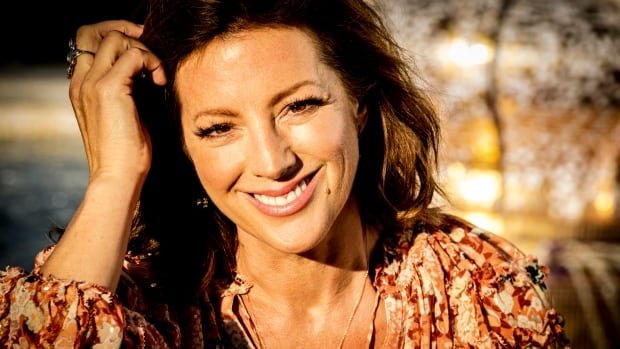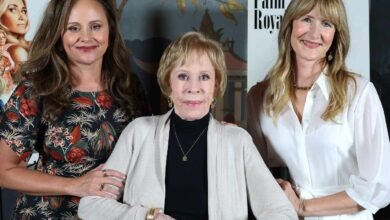Sarah McLachlan thought Angel was ‘too slow and depressing’ to become a hit | CBC Arts

[ad_1]
Sarah McLachlan can only think of one time in her career when she set out to write a single for pop radio — and it was only because she didn’t have a choice.
When the Canadian superstar signed with her first American label, they didn’t think they could sell an album with just her signature dreamy, soft-pop tunes. They asked the Halifax-born singer to write a single that would work on pop radio stations and she ended up writing Into the Fire.
“I don’t like the song because it feels disingenuous to me,” she tells Q‘s Tom Power. “I can listen to it and say, ‘OK, there’s some good qualities to it.’ But I hear the contrived nature of it. And I have a hard time getting over that.”
WATCH | Sarah McLachlan’s interview with Tom Power:
That was the first and last time McLachlan deliberately tried to write a commercial hit. Every time she wrote a song, she assumed it wouldn’t be viable for radio.
“I was always surprised when any of them were hits because I didn’t think they sounded like anything that was on commercial radio,” she says. “But I guess I was wrong, which is really good.”
WATCH | Official video for Into the Fire:
This is particularly true for one of her biggest hits, Angel. It was the No. 1 song of 1999 on the Billboard Adult Contemporary chart.
“I remember my manager at the time, Terry, saying, ‘Oh, Angel‘s going to be a hit,'” she says. “I’m like, ‘What are you talking about?… It’s slow and depressing, no one’s going to play this on the radio.'”
WATCH | Official video for Angel:
Songwriting, fame and stalkers
The Canadian Songwriters Hall of Fame will induct McLachlan into their hallowed halls this September. This is another item to add to her long list of accolades, including selling 40 million albums worldwide and winning three Grammys and 12 Junos.
But McLachlan struggled to write songs when she began her musical career. She often felt like she had nothing to say, and had to look to the outside world for inspiration. She studied the lyrics of Kate Bush, the Cocteau Twins and Peter Gabriel to learn the art of using imagery in songwriting. Eventually, she found that her own experiences inspired her songs.
“The narrative of my life started to weave its way in, especially when heartbreak happened,” she says. “Or when I started to look outside of my own myopic, self-involved world, and look at the larger world and what was happening to people around me.”
McLachlan even uses songwriting to process her own traumas. She’s had her fair share of stalkers, and wrote the song Possession to work through the intense emotions that come with that experience.
WATCH | Official video for Possession:
“Writing Possession for me was a little bit of trying to put myself into [the stalker’s] shoes,” she says. “To understand how someone could become so involved and so delusional about someone because they cared about them so much that they would possibly step over the line, do violent things.”
The stalking didn’t just start when she began to sing, but as a child. A picture of her as an 11-year-old with her friends at a skating rink appeared in a newspaper, with their names in the caption. A grown man looked up McLachlan’s information, phoned her home and said “dirty things” to her.
Becoming famous meant that you become public property…. I had to develop healthy boundaries for myself.– Sarah McLachlan
“I didn’t tell anybody, I didn’t tell my parents because I was so shocked by it and didn’t know what to do,” she says.
This early experience helped McLachlan realize what happens when you’re in the public eye.
“Becoming famous meant that you become public property,” she says. “I had to develop healthy boundaries for myself. I know that this thing that I create, people love it, people take it and they do all sorts of different things with it, it means all sorts of different things. But that actually has nothing to do with me.”
McLachlan says that singing about her traumas doesn’t transport her back to the experiences she writes about. She’s currently on a North American tour to celebrate the 30th anniversary of her breakthrough album, Fumbling Towards Ecstasy. The live performances remind her how good it feels to sing those songs — even the painful ones.
“I do not feel the grief, I feel joy and release,” McLachlan says. “I think part of songwriting for me is processing whatever it is I’m going through, finding a place to put it, wrapping it up in a pretty box and putting it up on a shelf.”
The full interview with Sarah McLachlan is available on our podcast, Q with Tom Power. Listen and subscribe wherever you get your podcasts.
Interview with Sarah McLachlan produced by Cora Nijhawan.



